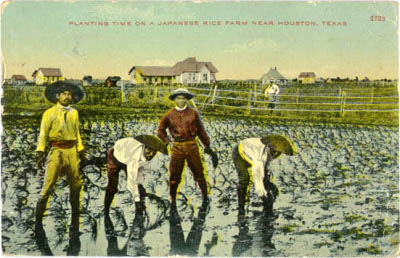
The decline of Japanese agriculture
 If
you've been following along for a while, you may remember my series
about traditional
Chinese farming practices. The book Farmers
of Forty Centuries
opened my eyes to farming methods that were clear forerunners of modern
organic gardening, complete with nitrogen fixing plants and massive
infusions of compost. As the name suggests, farmers in China
maintained the fertility of the same garden patches for as long as
4,000 years using their ancient techniques.
If
you've been following along for a while, you may remember my series
about traditional
Chinese farming practices. The book Farmers
of Forty Centuries
opened my eyes to farming methods that were clear forerunners of modern
organic gardening, complete with nitrogen fixing plants and massive
infusions of compost. As the name suggests, farmers in China
maintained the fertility of the same garden patches for as long as
4,000 years using their ancient techniques.
Fast forward ahead just
forty years after the book's publication date, and farming practices in
Japan (once very similar to those in China) turned around 180
degrees. After the end of World War II, Japanese farmers were
sucked in by the allure of time-saving American "innovations" like
chemical fertilizers, herbicides, and pesticides. According to
Masanobu Fukuoka, author of The
One-Straw Revolution, centuries of building
humus-rich soil washed away in just twenty years. Within one
generation, the Japanese soil was dependent on ever greater amounts of
chemical fertilizers to produce a crop.
Was there any way for
Japan to return to a more natural way of farming? Fukuoka said
yes, and his book struck a chord with both Japanese folks and Americans
in the 1970s. Stay tuned for his insights in this week's
lunchtime series.
| This post is part of our One-Straw Revolution lunchtime series.
Read all of the entries: |
Want more in-depth information? Browse through our books.
Or explore more posts by date or by subject.
About us: Anna Hess and Mark Hamilton spent over a decade living self-sufficiently in the mountains of Virginia before moving north to start over from scratch in the foothills of Ohio. They've experimented with permaculture, no-till gardening, trailersteading, home-based microbusinesses and much more, writing about their adventures in both blogs and books.
Want to be notified when new comments are posted on this page? Click on the RSS button after you add a comment to subscribe to the comment feed, or simply check the box beside "email replies to me" while writing your comment.

"After the end of World War II, Japanese farmers were sucked in by the allure of time-saving American "innovations" like chemical fertilizers, herbicides, and pesticides. "
I wonder how much of that was Japan wanting to change, versus US coercion (friendly or not) as we helped them rebuild after the war.